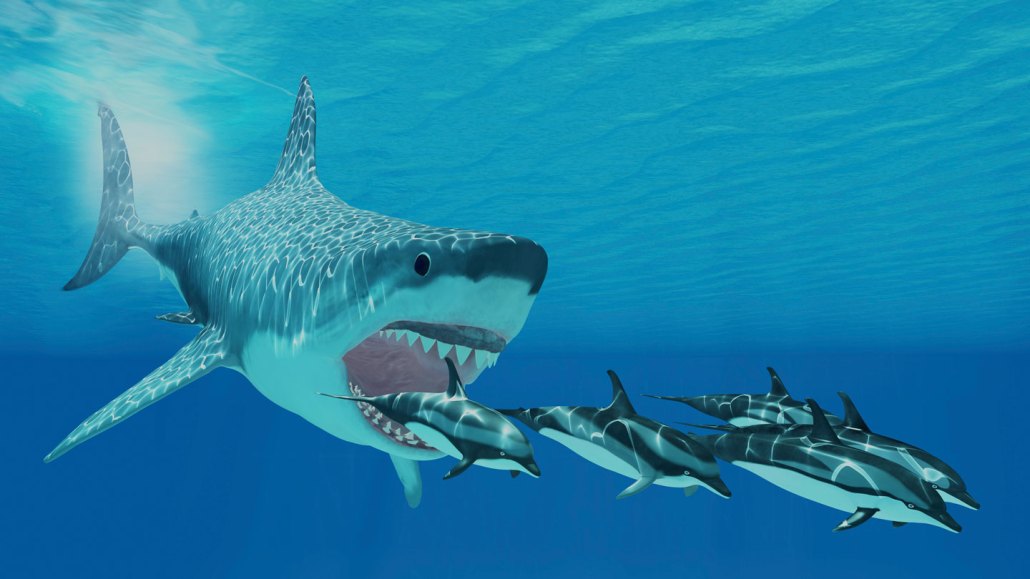carnivore: An animal that either exclusively or primarily eats other animals.
diet: (n.) The foods and liquids ingested by an animal to provide the nutrition it needs to grow and maintain health. Sometimes this is a specific food-intake plan.
enamel: The glossy, hard substance that covers a tooth.
evolutionary: An adjective that refers to changes that occur within a species over time as it adapts to its environment. Such evolutionary changes usually reflect genetic variation and natural selection, which leave a new type of organism better suited for its environment than its ancestors. The newer type is not necessarily more “advanced,” just better adapted to the conditions in which it developed.
extinct: (n. extinction) An adjective that describes a species for which there are no living members.
factor: Something that plays a role in a particular condition or event; a contributor.
food web: (also known as a food chain) The network of relationships among organisms sharing an ecosystem. Member organisms depend on others within this network as a source of food.
isotopes: Different forms of an element that vary somewhat in mass (and potentially in lifetime). All have the same number of protons in their nucleus, but different numbers of neutrons.
marine mammal: Any of many types of mammals that spend most of its life in the ocean environment. These include whales and dolphins, walruses and sea lions, seals and sea otters, manatees and dugongs — even polar bears.
megalodon: An extinct shark species, Carcharocles megalodon, that lived between the early Miocene (an epoch which started some 23 million years ago) and the end of the Pliocene (roughly 2.6 million years ago). Most scientists believe it was the largest fish to ever live. Its name comes from the Greek and means gigantic tooth. The average adult member of this species could have spanned more than 10 meters (33 feet) and weighed 30 metric tons (66,000 pounds) or more.
predator: (adjective: predatory) A creature that preys on other animals for most or all of its food.
prey: (n.) Animal species eaten by others. (v.) To attack and eat another species.
shark: A type of predatory fish that has survived in one form or another for hundreds of millions of years. Cartilage, not bone, gives its body structure.
species: A group of similar organisms capable of producing offspring that can survive and reproduce.
whale: A common, but fairly imprecise, term for a class of large mammals that lives in the ocean. This group includes dolphins and porpoises.
zinc: A metallic element that in its pure form is ductile (easily deformed) and that is an essential micronutrient in plants and animals.







